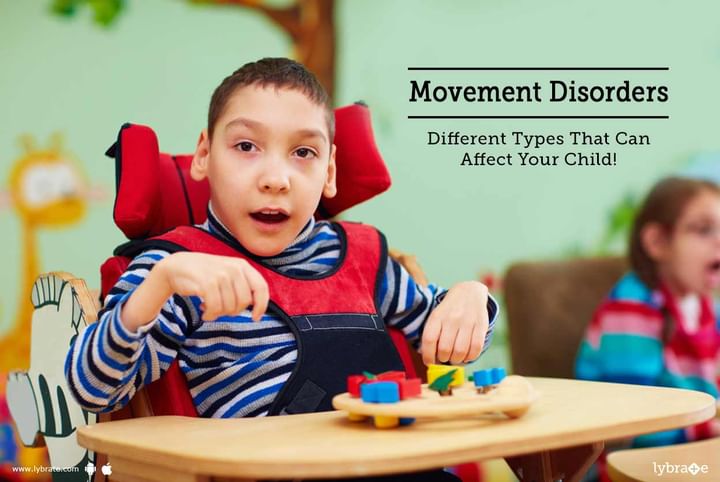Movement Disorders - Different Types That Can Affect Your Child!
Movement disorders can trigger from various types of brain injuries, metabolic disturbances, inflammation, trauma, side effects of medication, genetic disorders, infections etc. The brain structures that get affected are believed to include the thalamus, brainstem, basal ganglia, cortex etc. Since all these structures function together, any abnormalities in any of the structures can compromise movement. For instance, a kid suffering from primary dystonia can lead a near normal life, if the condition is detected and treated early in life. However, on the other hand, if the same condition goes undetected it can cripple the child for the rest of his life.
Different types of moment disorder-
- Chorea: It results from a neurological injury. The movement of children suffering from this condition becomes irregular and dance-like. The child often becomes slow or more forceful in their movement. If the condition affects the legs, a kid can frequently stumble and face difficulty while walking. Sydenham chorea is a condition that is not very severe and is reversible with treatment.
- Tremor: It is a condition that is characterized by trembling or shaky movements. This often results from an underlying and undetected condition that may be genetic in nature or a side effect of other medications. A kid suffering from this condition faces difficulty in fine-tuning movements. Tremor may run in family e.g. essential tremors.
- Myoclonus: It a disorder that involves quick involuntary muscle jerks that a child fails to resist.The jerks can be frequent or occasional, there may or may not be a pattern involved to it. This condition has no long-term complication on a child’s health, but it is necessary to evaluate the type of myoclonus a child is suffering from and must be differentiated from myoclonic seizure.
- Dystonia: It causes the muscle groups to contract abnormally, due to faulty signals of the brain. Instead of a coordinated contraction of muscles, they can contract in opposition causing the push and the pull muscles to work together. This can cause uncomfortable and painful twisting of limbs.
- Tourette syndrome: It is involuntary in nature, where sudden sounds or movements that appear, vanishes over a prolonged time period. This condition is the advanced form of muscle tics. They can involve any part of the body and greatly varies in severity. Children can successfully suppress tics but over time they build a sense of wrongness while resisting it. Most tic disorders are reversible with the right treatment.
- Ataxia: It results from a failure of motor coordination of the cerebellum, due to an injury or dysfunction. This condition can have various patterns involved to it. While few types of ataxia can come and go due to a condition such as metabolic disorder, epilepsy, genetic mutation etc, some begin abruptly due to brain bleed or stroke.
In case you have a concern or query you can always consult an expert & get answers to your questions!



+1.svg)
